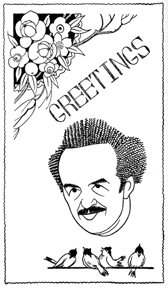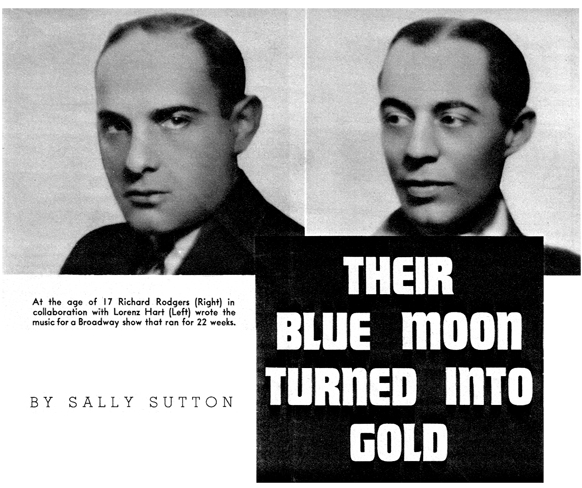The delightful Jimmy Durante was born 122 years ago today. If ever we find ourselves fretting over our age and perhaps wishing we were younger, we remind ourselves that, were we born later, we might not have shared time on God’s green earth with some of our favorite performers of years gone by, and the Schnozzola certainly deserves a spot on that roster. We weren’t around for his heyday, but he was still a busy performer when we were younger and we got to enjoy him as a frequent talk show and variety show guest.
Durante doesn’t immediately spring to mind when we’re asked to name some of our favorite stars of yore, but when we do think of him, a smile invariably forms on our lips, and that’s as strong an endorsement as any performer could hope for: to make people smile at the mere memory of you some 35 years after your passing.
Happy birthday, Mr. Durante, wherever you are. Give our best to Mrs. Calabash.




 hat incomparable team of songwriters, Lorenz Hart and Richard Rodgers, author and composer of Blue Moon, began turning out their great song hits without the benefit of Necessity, the mother of so much of our musical invention, being around to spur them on.
hat incomparable team of songwriters, Lorenz Hart and Richard Rodgers, author and composer of Blue Moon, began turning out their great song hits without the benefit of Necessity, the mother of so much of our musical invention, being around to spur them on.